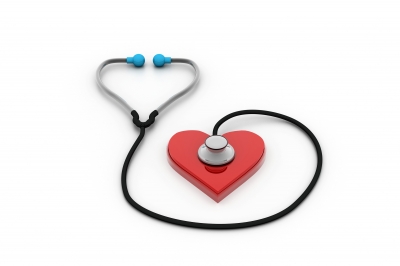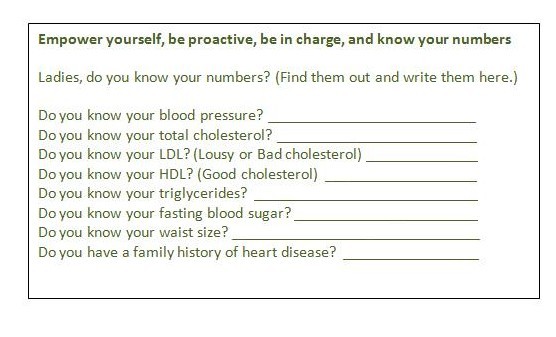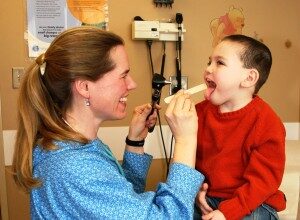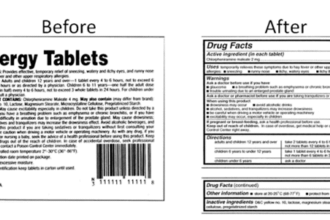By Barbara Ficarra, RN, BSN, MPA
By Barbara Ficarra, RN, BSN, MPA

American Heart Month may be officially over, but don’t let the lack of media attention fool you into thinking heart disease isn’t a critical issue.
We still need to be mindful of the fact that heart disease is the number one killer of women.
There are simple lifestyle choices you can make to help prevent you from heart disease.
I hope after reading this post you don’t just move on, but I hope you begin to take action to keep your beautiful body healthy and protect your heart.
Heart disease is preventable and by being proactive and taking charge of your health you can prevent this disease.
Take Action
This post will provide you with information to help stay healthy. I will highlight a smart mobile app, provide accurate and trusted websites for you to obtain more information, and a text box for you to record your numbers and questions to ask your doctor (NP or other health care provider).
Heart Disease: It’s a Big Deal
“Heart disease in women is a big deal,” says Randolph P. Martin M.D. F.A.C.C. F.A.S.E., Medical Director of Cardiovascular Imaging Chief Structural and Valvular Heart Disease-Piedmont Heart Institute-Atlanta, Georgia and Emeritus Professor of Medicine Emory Medical School. “It kills five to eight times more women than breast cancer,” he adds. “Women today think cancer is the major threat and while cancer can be devastating, it pales in comparison to the toll that heart disease takes on women.”
Heart Disease Myth Debunked
The biggest myth about heart disease is that “women don’t get heart disease like men, women think they are immune to heart disease,” said Peggy Morley, R.N., M.S., C.C.N.S., A.N.P.-C., Cardiology CNS/Nurse Practitioner at Hoag Heart & Vascular Institute, Hoag Memorial Hospital Presbyterian, Newport Beach, CA, “yet 500,000 women die each year of heart disease.”
Truthfully, women are not immune to heart disease and its killing women faster than any other disease.
Hollywood Heart Attack Often Depicts a Man
Ladies, quick! What are the symptoms of a heart attack in women? Do you know that the symptoms of a heart attack in women are different than men? How did you answer? Did you say crushing chest pain? Well, while that certainly can be a symptom, do you know that severe fatigue or severe indigestion can be signs of a heart attack in women? (The symptoms will be explored below.)
When thinking about someone having a heart attack, it’s easy to think about the classic Hollywood example; the man clutching his chest, gasping for a breath and falling to the ground.
In fact, women can have completely different symptoms including increased shortness of breath with customary activities and feelings of nausea, says Dr. Martin.
Symptoms of a heart attack that women can experience
- Increased shortness of breath with customary activities
- Unusual extreme fatigue*
- Significant indigestion especially with exertion
- Feelings of nausea/vomiting
- Dizziness
- Pain or pressure in the back or high chest, between shoulder blades
- Pain or discomfort (pressure) in one or both arms, neck, jaw, back, shoulder or stomach
It’s important that you don’t ignore the symptoms, seek treatment immediately.
*Dr. Martin notes that while all of us are fatigued a lot in life with all the stress of modern life, he’s talking about a really overwhelming fatigue.
Symptoms of a heart attack in men
- Chest pain on exertion
- Pain radiating to jaw or neck
- Acute onset of severe pain accompanied by sweating and nausea
INTERHEART Study
A large study called the INTERHEART Study showed that there are nine major risk factors that account for heart attacks, and the good news is, says Dr. Martin, “heart disease is preventable.”
“INTERHEART is a large, international, standardised, case-control study, designed as an initial step to assess the importance of risk factors for coronary heart disease worldwide…” The study has shown that nine easily measured protective or risk factors (smoking, lipids, self-reported hypertension or diabetes, obesity, diet, physical activity, alcohol consumption, and psychosocial factors) are associated with more than 90 percent of the risk of an acute myocardial infarction in this large global case-control study. The INTERHEART investigators, led by Dr. Yusuf, found that these risk factors are consistent across all geographic regions and every racial/ethnic group worldwide and are consistent in men and women, young and old.
Nine Major Risk Factors and Steps You Can Take To Live a Healthier Life
1. Smoking
Ladies, one of the best things you can do to prevent heart disease is to put an end to smoking. According to the INTERHEART Study, even smoking one to five cigarettes daily increases your risk for a heart attack by 40 percent. Second hand smoke should be avoided. Once you decide that you really want to take an actionable step to help keep your heart healthy, that’s good news. There is help for nicotine addiction. There are smoking cessation programs that can help.
Love Your Body, Protect Your Heart Tip: If you smoke, quit!
[APP: We would love to know if you were a smoker and you quit. Did you use a “quit smoking app?” Was it helpful? How did you quit? Please share your stories with us in the comment section below.]
2. High Cholesterol, High Triglycerides
Cholesterol is a waxy, fat-like substance that occurs naturally in all parts of the body. Your body needs some cholesterol to work properly. But if you have too much in your blood, it can stick to the walls of your arteries. This is called plaque. Plaque can narrow your arteries or even block them.
Know your total cholesterol, your LDL (lousy or bad) cholesterol and your HDL (good cholesterol). Total cholesterol needs to be below 200 mg/dL.
HDL (good) cholesterol should be above 60 mg/dL. (In the average woman, they range from 50 to 60 mg/dL. An HDL cholesterol of 60 mg/dL or higher gives some protection against heart disease.)
LDL (lousy or bad) cholesterol should be less than 100 mg/dL.
Love Your Body, Protect Your Heart Tip: Know your total cholesterol, HDL and LDL, write them down. Also, you should limit the amount of foods you eat that contain saturated fat, trans fat and cholesterol. These fats may cause plaque buildup in your arteries.
- Saturated fat (found in foods such as fatty cuts of meat, whole milk, cheese made from whole milk, ice cream, sherbet, frozen yogurt, butter, lard, cakes, cookies, doughnuts, sausage, regular mayonnaise, coconut, palm oil)
- Trans fat (found mainly in processed foods such as cakes, cookies, crackers, pies, stick or hard margarine, potato chips, corn chips)
- Cholesterol (found in foods such as liver, chicken and turkey giblets, pork, sausage, whole milk, cheese made from whole milk, ice cream, sherbet, frozen yogurt)
Triglycerides should be less than 150 mg/dL.
Triglycerides are a type of fat in the bloodstream and fat tissue. Too much of this type of fat can contribute to the hardening and narrowing of your arteries. This puts you at risk of having a heart attack or stroke.
Love Your Body, Protect Your Heart Tip: Know what your Triglycerides are, write it down, also a low-sugar, low-fat diet may help and limiting alcohol can help lower your Triglycerides. Cleveland Clinic offers helpful tips here.
3. High Blood Pressure (Hypertension)
Blood pressure is the force of your blood pushing against the walls of your arteries. Each time your heart beats, it pumps out blood into the arteries. Your blood pressure is highest when your heart beats, pumping the blood. This is called systolic pressure. When your heart is at rest, between beats, your blood pressure falls. This is the diastolic pressure.
Ideal blood pressure is less than 120/80.
Love Your Body, Protect Your Heart Tip: Learn how to take your own blood pressure and keep track of it.
4. Diabetes
Diabetes is a disease in which your blood glucose, or sugar, levels are too high. Glucose comes from the foods you eat. Insulin is a hormone that helps the glucose get into your cells to give them energy. With Type 1 diabetes, your body does not make insulin. With Type 2 diabetes, the more common type, your body does not make or use insulin well. Without enough insulin, the glucose stays in your blood. Over time, having too much glucose in your blood can cause serious problems. It can damage your eyes, kidneys, and nerves. Diabetes can also cause heart disease, stroke and even the need to remove a limb.
Fasting blood sugar should be below 100.
Love Your Body, Protect Your Heart Tip: Know your fasting blood sugar. If you have diabetes, learn to take charge of it. [dLife, American Diabetes Association, Center for Disease Control and Prevention (CDC) – Diabetes Public Health]
5. Obesity
Are you overweight? Well, if you are, you’re increasing your risk for heart disease. In fact, if you have fat around your belly, that’s a major concern. That belly fat (or abdominal obesity) isn’t healthy. Measure your waist, if it’s over 35 inches, that’s a problem.
Love Your Body, Protect Your Heart Tip: Get a tape measure and measure your waist just above the belly button. You want it below 35 inches. If you’re overweight, set a weight loss goal, exercise and eat healthy. Talk to your doctor to find out what your healthy weight goal.
6. Sedentary Lifestyle
Ok ladies, there’s no excuse for being lazy. I know, we’re all busy and it’s so easy to make excuses, but stop being inactive and just move. Walking counts!
Love Your Body, Protect Your Heart Tip: Exercise 30 minutes per day, five days per week. Find a walking path near you.
App: The American Heart Association Walking Path App. You can create, find and track Walking Paths anytime, anywhere. Create paths on the go, find paths near you, start walking and get healthy!
7. Poor Eating Habits
Following the Mediterranean diet is a good step towards good health. Lean proteins, fresh fruits and vegetables, nuts, fish, and whole grains are good choices.
Track your fruits and vegetables.
The common Mediterranean dietary pattern consists of five characteristics: [source: American Heart Association]
- A high consumption of fruits, vegetables, whole-grain breads and cereals, potatoes, beans, nuts and seeds
- Olive oil as a key source of monounsaturated fat (monounsaturated fat doesn’t raise blood cholesterol levels the way saturated fat does)
- Dairy products, fish and poultry in low to moderate amounts; little red meat is eaten
- Eggs consumed zero to four times a week
- Wine in low to moderate amounts
Love Your Body, Protect Your Heart Tip: Follow the Mediterranean Diet, watch your salt intake.
8. Stress, Trapped in a Demanding Job, Feeling Job Strain
[A separate post will focus on stress and helpful ways to keep it at bay]
9. Alcohol Consumption
In the INTERHEART Study, “Regular alcohol use was defined as consumption three or more times a week.” The study suggests that “advice about alcohol use could be best customized to individuals depending on their social, cultural, and religious backgrounds and the overall effect on their health.”
Drinking too much alcohol can, over time, damage your heart and raise your blood pressure. If you drink alcohol, you should do so moderately. For women, moderate drinking means one drink per day. For men, it means two drinks per day. One drink counts as:
- 5 ounces of wine
- 12 ounces of beer
- 1½ ounces of 80-proof hard liquor
Note: While alcohol consumption can be protective again heart attacks; always check with your physician before adding alcohol to your daily living plan. Also note, if you have high triglycerides, lowering alcohol intake may be necessary. Talk to your doctor.
Does Heart Disease Run in Your Family?
It’s important to know if you have a family history of heart disease, says Morley. If you have a family history, “there’s a pretty good chance that you’ll have heart disease,” she adds. Also, it’s important to establish a relationship with a primary physician for a full physical, she says.

Questions to Ask Your Doctor
- When do I need to have my total cholesterol, HDL and LDL rechecked?
- How long typically does it take to get my numbers on track (to reach my cholesterol goals)?
- Are dietary changes sufficient or do I need cholesterol lowering medicine? Is there a supplement that can be used instead?
- Do I need an EKG?
- Do I need a Stress Test?
- Do I need a Stress Echo?
- Do I need a Coronary Calcium Scan?
Morley suggests that you ask about an EKG, Stress Test, Stress Echo and Coronary Calcium Scan if you have a family history of heart disease.
“Women need to learn about the prevention, signs and symptoms and treatment of heart disease just as much as men do. There is a lot of publicity about breast cancer and fear of this disease gets women to be proactive with the recommendations for surveillance and management. But coronary artery disease is still the #1 killer in women. Unfortunately, women often don’t recognize the symptoms of heart disease (which often manifests differently than it does in men) and they seek attention late,” says Christina Birch, RN, ANP, Adult Nurse Practitioner at Berkeley Cardiovascular Medical Group, Berkeley, CA.
Take-Away
Ladies, let’s see if you’ll take something away from this post. Hopefully you will. Can you name the symptoms of heart attack in women now? Can you name the 9 risk factors that can contribute to a heart attack? Can you name healthy lifestyle choices? Are you going to write down your numbers? Will you ask your doctors questions? This post is for you to help empower you to be the most fabulous woman you can be. If you need help, ask for it. There are so many wonderful people in this world ready to help others. Also there are online support groups that can help you vent and share information.
Bottom Line
- Know the symptoms of a heart attack
- Know that the symptoms can be different for women
- Know to seek immediate treatment if you experience any of the symptoms
- Know the risk factors
- Know your numbers
- Know that it’s okay to ask your doctor questions. Write them out before your office visit
- Know there is help; online community support groups may help you
- Know that you shouldn’t ignore your body
- Know that heart disease is the number one killer of women
- Know that heart disease is preventable
- Find fun in your life
- Surround yourself with happy people
“Women need to get very aggressive,” says Dr. Martin. Women need to be proactive, know their numbers, and become engaged in their health. “The most important thing in life is to find some fun in your life and to laugh, he adds. Find friends you really enjoy.”
Your Apps
We would also love to hear from you regarding the mobile apps you use for healthy living. Are you using a mobile app to help you quit smoking? Track your blood pressure? Monitor your blood sugars? Help plan your meals? Please share your smart mobile app recommendations in the comment section below.
Your Turn
We would love to hear from you. Do you practice prevention? Do you eat healthy and exercise? Do you know your numbers? Did you find this post helpful? Is there any part of it you’ll take-away? What online support groups do you use? What tips do you have for maintaining a healthy diet?
As always, thank you for your time.
Useful Resources
American Heart Association – Go Red for Women
American Heart Association – Find a Start! Walking Path
U.S. Department of Health and Human Services
U.S. Department of Health and Human Services-National Heart Lung and Blood Institute
The Lancet, Volume 364, Issue 9438, Pages 937 – 952, 11 September 2004
WomenHeart Community at Inspire
—
Follow @Barbara Ficarra on Twitter
Original article, Ladies, Love Your Body, Protect Your Heart, originally published on The Huffington Post.
—
[Image: renjith krishnan / FreeDigitalPhotos.net]








